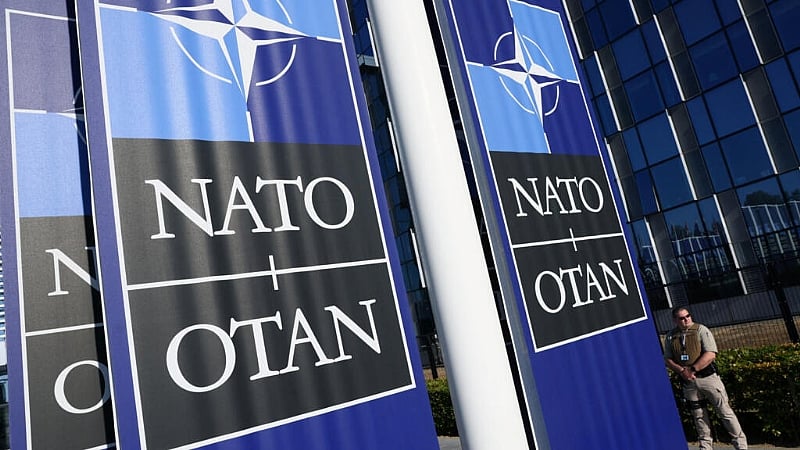Introduction
NATO is often presented as a guardian of global peace. Yet, in Africa, its interventions have left a legacy of instability, weakened states, and compromised sovereignty. From Libya to the Sahel, and with the expanding reach of AFRICOM, Western military engagement often deepens the very crises it claims to resolve. Africa now stands at a crossroads: it can either continue down the path of foreign dependency or chart a new course—led by Africans, for Africans.
Libya: The Collapse of a Nation Under NATO Bombs
In 2011, NATO intervened in Libya under the pretext of protecting civilians. The result was the toppling of Muammar Gaddafi and the collapse of one of Africa’s most developed nations. Before the intervention, Libya enjoyed high living standards, universal healthcare, and free education. The NATO campaign, however, transformed the country into a haven for militias, terrorist networks like ISIS, and human traffickers.
Arms looted from Libyan stockpiles spilled into the Sahel, fueling insurgencies in Mali, Niger, and Burkina Faso. The African Union’s diplomatic efforts were disregarded, highlighting the marginalization of African voices in favor of a regime change agenda.
The Sahel: Security Without Peace
The ripple effects from Libya’s collapse destabilized the entire Sahel region. In Mali, a 2012 coup—bolstered by returning Tuareg fighters and Libyan arms—ignited a long-running conflict. French military operations such as Operation Barkhane, aligned with NATO interests, focused on counterterrorism while neglecting governance, justice, and development.
Despite over a decade of foreign military engagement, the Sahel remains engulfed in violence. Armed groups expand their reach, civilian casualties rise, and foreign forces—by propping up unpopular regimes—have often alienated local communities.
The growing disillusionment led to the expulsion of French forces from several Sahelian countries. Seeking alternatives, some governments have turned to actors like Russia’s Wagner Group—not as a true solution, but as a symptom of a failed security paradigm that commodifies protection and undermines sovereignty.
AFRICOM and the Militarization of Development
AFRICOM, presented as a “partnership” initiative, represents the deepening militarization of African development. With drone bases, intelligence hubs, and covert operations, it entrenches Africa within a security framework driven by American strategic interests rather than African realities.
By aligning with authoritarian regimes and operating without full transparency, AFRICOM erodes democratic aspirations and blurs the lines between aid, diplomacy, and dominance.
Rethinking Security: A Pan-African Alternative
To reclaim security and sovereignty, Africa must redefine peace not merely as the absence of conflict, but as the presence of justice, opportunity, and dignity. This demands a bold shift—from foreign-led interventions to African-led initiatives grounded in local realities.
Key Recommendations
1. Empower African Institutions
Strengthen the AU Peace and Security Council with independent funding and operational autonomy. Enhance the African Standby Force’s rapid deployment capabilities. Support ECOWAS, IGAD, and SADC in conflict mediation and peacekeeping.
2. Demilitarize Development
Shift focus from counterterrorism to human security. Redirect donor funds to education, healthcare, and youth employment.
3. Support Local Peacebuilding
Promote traditional conflict-resolution systems. Integrate women and youth into national peace dialogues. Recognize the role of religious and cultural leaders in reconciliation.
4. Control Arms and Disarm Conflicts
Launch a continental framework for arms control. Improve border security using regional technology-sharing. Sanction those trafficking arms and exploiting conflict zones.
5. Demand Justice and Accountability
Call for reparations for unlawful interventions. Establish African-led truth and justice commissions.
6. Reinvest in Pan-African Identity and Unity
Embed Pan-African history and identity in school curricula. Promote cultural, economic, and technological collaboration across Africa. Reclaim African media narratives to inspire resilience and pride.
Conclusion: Toward a Sovereign Africa
Africa’s future depends on reclaiming its sovereignty—not only in political terms but also in how it defines security, development, and international partnerships. NATO’s intervention in Libya exposed the dangers of militarized dependency and external agendas.
It is time for Africa to say “no more” to imposed peace and foreign bases. A new vision must emerge: African-centered, dignity-driven, and unity-powered. Only then can Africa rise beyond the shadows of foreign bombs—toward a future where peace is not imposed but cultivated from within.


